TPP - Chapter 05 - Customs Administration and Trade Facilitation
Chapter 05-TPP Agreement on Customs Administration and Trade Facilitation within the TPP Agreement
CHAPTER 5
CUSTOMS ADMINISTRATION AND TRADE FACILITATION
Article 5.1: Customs Procedures and Trade Facilitation
Each Party shall ensure that its customs procedures are applied uniformly, transparently, and predictably.
Article 5.2: Customs Cooperation
1. To facilitate the effective operation of this Agreement, each Party shall:
(a) Encourage cooperation with other Parties concerning significant customs issues affecting goods traded between the parties; and
(b) Endeavor to provide prior notification to each Party of any significant administrative changes, legislative or regulatory amendments, or similar measures concerning the laws or regulations governing its exports or imports that could substantially affect the operation of this Agreement.
2. Each Party, in accordance with its laws, shall cooperate with the other Parties by sharing information and engaging in other appropriate activities to comply with the relevant laws and regulations related to:
(a) the implementation and operation of the provisions of this Agreement on exportation or importation, including requirements for preferential tariff treatment, procedures for claiming preferential tariff treatment, and verification procedures;
(b) the implementation, application, and operation of the Customs Valuation Agreement;
(c) restrictions or prohibitions on imports or exports;
(d) investigation and prevention of customs law violations, including tax evasion and smuggling; and
(e) other customs matters as decided by the Parties.
3. If a Party has a reasonable suspicion of unlawful activity relating to its import laws or regulations, it may request another Party to provide specific confidential information typically collected during the importation of goods.
4. A request made by a Party under paragraph 3 shall:
(a) be in writing;
(b) specify the purpose for seeking the information; and
(c) identify the requested information with sufficient specificity for the requested Party to locate and provide the information.
5. The requested Party, in accordance with its laws and relevant international agreements it participates in, shall provide a written response containing the requested information.
6. Within the scope of paragraph 3, "reasonable suspicion of unlawful activity" is suspicion based on relevant factual information gathered from public or private sources, including one or more of the following factors:
(a) past information about an importer or exporter not complying with import laws or regulations;
(b) past information about a manufacturer or another person related to the transportation of goods from the territory of one Party to the territory of another Party not complying with import laws or regulations;
(c) past information about some or all persons involved in the transportation of certain goods or a sector from the territory of one Party to the territory of another Party not complying with import laws or regulations; or
(d) other information deemed sufficient by the requestor and the requested Party to support the request.
7. Each Party shall endeavor to provide any other information that would assist another Party in determining whether goods imported from or exported to that Party comply with its import laws or regulations, particularly regarding unlawful activities, such as smuggling and similar violations.
8. To facilitate trade between the Parties, the party receiving a request shall endeavor to provide technical advice and assistance to the requesting Party to:
(a) Develop and implement improved best practices and risk management techniques;
(b) Facilitate the implementation of international supply chain standards;
(c) Simplify and enhance customs clearance procedures promptly and efficiently;
(d) Develop professional skills for customs personnel; and
(e) Increase the use of technologies that can improve compliance with import laws and regulations of the requesting Party.
9. The Parties shall endeavor to establish or maintain communication channels for customs cooperation, including through the establishment of contact points to facilitate a prompt and secure exchange of information and enhance coordination on import-related matters.
Article 5.3: Advance Rulings
1. Before the importation of goods from a Party into its territory, each Party shall issue an advance ruling in writing upon written request by an importer in its territory, or an exporter or producer in the territory of another Party on:
(a) tariff classification;
(b) the application of the customs valuation criteria to a specific case in accordance with the Customs Valuation Agreement;
(c) whether a good qualifies as an originating good under Chapter 3 (Rules of Origin and Origin Procedures); and
(d) other matters as decided by the Parties.
2. Each Party shall issue an advance ruling as expeditiously as possible and in any case within 150 days from the date of receipt of the request, provided that the requester has submitted all the information required by the Party to issue the advance ruling. This information includes a sample of the goods for which an advance ruling is requested if required by the Party. When making an advance ruling, the Party shall take into account the facts and circumstances presented by the requester. For clarity, a Party may decline to issue an advance ruling if the facts and circumstances on which the ruling is based are the subject of administrative or judicial review. A Party declining to issue an advance ruling shall promptly notify the requester in writing, specifying the relevant facts and circumstances and the basis for the decision to decline the ruling.
3. Each Party shall apply its advance rulings from the date they are issued or a later date specified in the ruling and shall have them remain in effect for at least three years, provided that the laws, facts, and circumstances upon which the ruling is based remain unchanged. If a Party's laws require that an advance ruling ceases to be effective after a certain period, the Party shall strive to provide procedures for extending the advance ruling before its expiry, provided that the laws, facts, and circumstances upon which the ruling is based remain unchanged.
4. After issuing an advance ruling, a Party may modify or revoke the ruling if there is a change in the laws, facts, or circumstances upon which the ruling is based, if the ruling was based on inaccurate or erroneous information, or if the ruling contains an error.
5. A Party may modify or revoke an advance ruling under paragraph 4 after notifying the requester of the modification or revocation and specifying the reasons.
6. No Party shall apply a modification or revocation retroactively to the detriment of the requester, except where the advance ruling was based on inaccurate or erroneous information provided by the requester.
7. Each Party shall ensure that the requester has access to information about the administrative review of advance rulings.
8. Subject to the confidentiality requirements in its laws, each Party shall endeavor to make its advance rulings public, including online.
Article 5.4: Response to Requests for Consultations or Information
Upon request by an importer in its territory, or an exporter or producer in the territory of another Party, each Party shall promptly consult or provide the relevant information on matters contained in the request regarding:
(a) quota requirements, such as tariff rate quotas;
(b) application of drawbacks, duty deferrals, or other relief from duties, such as reduced duties, refunds, or duty exemptions;
(c) requirements for goods under Article 2.6 (Goods Re-entered After Repair or Alteration);
(d) country of origin, if it is a condition for import; and
(e) other matters as decided by the Parties.
Article 5.5: Review and Appeal
1. Each Party shall ensure that a person to whom a determination has been issued concerning a customs matter has the right to access information about:
(a) the administrative review of the determination, independent 4 of the official or office that issued the determination; and
(b) the judicial review of the determination. 5
2. Each Party shall ensure that the authority conducting the review under paragraph 1 notifies the interested parties of its decision in writing and sets out the reasons for the decision. A Party may require that a petition is a condition for providing reasons for a decision in the review process.
Article 5.6: Automation
1. Each Party shall:
(a) endeavor to use relevant international standards for the release of goods;
(b) facilitate access by users of customs to its electronic systems;
(c) use electronic or automated systems for risk analysis and targeting;
(d) endeavor to implement common standards and elements for import and export data in accordance with the World Customs Organization (WCO) Data Model;
(e) consider implementing the WCO recommendations, models, methodologies, and standards developed through the WCO or APEC; and
(f) work towards developing a set of common data elements drawn from the WCO data model and relevant WCO recommendations and guidelines to facilitate the exchange of data among governments for the purpose of trade flow analysis.
2. Each Party shall endeavor to provide a facility enabling importers and exporters to complete standard import and export requirements online at a single entry point.
Article 5.7: Express Shipments
1. Each Party shall adopt or maintain simplified customs procedures for express shipments while maintaining appropriate customs control and selection. These procedures shall:
(a) provide that information required to release an express shipment is submitted and processed before the shipment arrives;
(b) allow a single submission of information covering all goods in an express shipment, such as a manifest, through electronic means, where possible; 6
(c) provide for minimum documentation for the release of express shipments;
(d) provide that express shipments are released within six hours after submission of necessary customs documents in normal circumstances, provided the shipment has arrived;
(e) apply without discrimination based on the weight or value of the express shipments; however, a Party may require formal entry procedures as a condition for releasing the goods, including declarations, supporting documents, and payment of duties based on the weight or value of the goods; and
(f) provide that, under normal circumstances, shipments valued at or below a fixed amount as specified by that Party's laws 7 will not be subject to customs duties. Each Party shall periodically review this amount, taking into account factors such as inflation rates, impact on trade facilitation, impact on risk management, administrative costs of collecting duties versus the revenue, cross-border trade transaction costs, impact on small and medium-sized enterprises, or other relevant factors related to duty collection.
2. If a Party does not apply the benefits in paragraphs 1(a) to (f) to all shipments, it shall provide a separate expedited customs procedure 8 that applies the above benefits to express shipments.
Article 5.8: Penalties
1. Each Party shall adopt or maintain measures that enable its customs authority to impose penalties for violations of its customs laws, regulations, or procedural requirements, including tariff classification, customs valuation, country of origin, and preferential treatment claims under this Agreement.
2. Each Party shall ensure that a penalty imposed by its customs authority for a customs law, regulation, or procedural requirement violation is imposed only on the person legally responsible for the violation.
3. Each Party shall ensure that penalties imposed by its customs authority are dependent on the facts and circumstances 9 of the case and are proportionate to the severity of the violation.
4. Each Party shall ensure that it maintains measures to avoid conflicts of interest in the imposition and collection of fines and taxes. Fines or taxes shall not be calculated as a percentage or fixed part of the compensation of a government official.
5. Each Party shall ensure that if its customs authority imposes a penalty for a customs law, regulation, or procedural requirement violation, it provides the person assessed with a written explanation specifying the nature of the violation and the legal basis or procedural requirements relied upon to determine the amount of the penalty.
6. If a person voluntarily provides information to the customs authority of a Party concerning the circumstances of a violation of a customs law, regulation, or procedural requirement before the authority detects the violation, the authority may, where appropriate, consider this fact as a mitigating factor when determining the amount of the penalty.
7. Each Party shall specify in its laws, regulations, and procedures, or apply a fixed and finite period during which its customs authority may initiate proceedings 10 to impose a penalty for a customs law, regulation, or procedural requirement violation.
8. Despite paragraph 7, a customs authority may impose a penalty as an alternative to judicial or administrative proceedings beyond the fixed and finite period specified above.
Article 5.9: Risk Management
1. Each Party shall adopt or maintain a risk management system to assess and target allowing its customs authority to focus on high-risk goods and streamline the clearance and movement of low-risk goods.
2. To facilitate trade, each Party shall periodically review and update its risk management system as appropriate.
Article 5.10: Release of Goods
1. Each Party shall adopt or maintain simplified customs procedures for the efficient release of goods to facilitate trade between the parties. This paragraph does not require a Party to release goods if its requirements for the release of goods have not been met.
2. Consistent with paragraph 1, each Party shall adopt or maintain procedures that:
(a) provide for the release of goods within a period no longer than necessary to ensure compliance with its customs laws and, to the extent possible, within 48 hours after the goods arrive;
(b) provide for the electronic submission and processing of customs information before the arrival of goods to expedite their release from customs control upon arrival;
(c) allow goods to be released at the destination without temporary transfer to warehouses or other facilities; and
(d) enable an importer to obtain the release of goods before the final determination of the customs duties and fees by the customs authority of the importing Party where those duties and fees are not determined before or at the time of arrival of goods, provided that the goods qualify for release and any security required has been provided or payments in dispute, if required by a Party, have been made. A payment in dispute includes duties and fees if under dispute and an available procedure to resolve such disputes.
3. If a Party permits the release of goods conditional on a guarantee, it shall adopt or maintain procedures that:
(a) ensure that the amount of the guarantee is no greater than necessary to secure that the customs obligations arising from the importation of the goods are fulfilled;
(b) ensure that the guarantee shall be promptly released after its customs authority determines that the obligations arising from importing the goods have been fulfilled; and
(c) allow an importer to submit guarantees using non-monetary financial instruments, including in cases where the importer frequently imports goods, tools belonging to multiple entries, where appropriate.
Article 5.11: Public Disclosure
1. Each Party shall provide online access to its customs laws, regulations, and general administrative procedures, including guidelines in English, where possible.
2. Each Party shall designate or maintain one or more enquiry points to address questions from interested persons concerning customs matters and shall provide online access to information regarding the procedures for making such inquiries.
3. To the extent possible, each Party shall provide advance notice of the regulations of general application concerning customs matters that it proposes to adopt and give interested persons the opportunity to comment before adopting the regulation.Article 5.12: Confidentiality
-
If one Party provides confidential information to another Party pursuant to this Chapter, the receiving Party shall be responsible for keeping it confidential. The providing Party may require the receiving Party to issue a written assurance that such information will be kept confidential, used only for the purposes specified in the request of the requesting Party, and not disclosed without the specific permission of the providing Party or the person who provided the information to them.
-
A Party has the right to refuse to provide information as requested by another Party if that Party does not comply with paragraph 1.
-
Each Party must adopt or maintain procedures to protect confidential information provided under its customs law from unauthorized disclosure, including information that, if disclosed, could prejudice the competitive position of the person providing the information.
1 For further clarification, an importer, exporter, or producer may submit a request for a prior ruling through a legally authorized representative.
2 For further clarification, a Party is obliged to provide a prior ruling if that Party does not maintain measures relating to the request for a ruling.
3 Within the scope of this Article, a decision, if made by Peru, is an administrative act.
4 The extent of administrative review may include any agency overseeing customs administration.
5 Brunei Darussalam may comply with this clause by establishing or maintaining an independent body to provide an objective review of decisions.
6 For further clarification, additional documentation may be considered a condition for the release of goods.
7 Notwithstanding the provisions of this Article, a Party may levy taxes or may require formal entry documentation for restricted or controlled goods such as goods subject to import licensing or similar requirements.
8 For further clarification, "separate" does not mean any particular premises or flow.
9 Facts and circumstances shall be established objectively in accordance with the laws of each Party.
10 For further clarification, "proceedings" are administrative measures undertaken by customs authorities and do not include judicial proceedings.
TABLE OF CONTENTS
TPP - Chapter 01 - General Provisions and Definitions
TPP - Chapter 02 - National Treatment and Access to Goods Market
TPP - Chapter 03 - Rules of Origin and Origin Procedures
TPP - Chapter 05 - Customs Administration and Trade Facilitation
TPP - Chapter 06 - Trade Remedies
TPP - Chapter 07 - Sanitary and Phytosanitary Measures
TPP - Chapter 08 - Technical Barriers to Trade
TPP - Chapter 10 - Cross-Border Trade in Services
TPP - Chapter 11 - Financial Services
TPP - Chapter 12 - Temporary Entry for Business Persons
TPP - Chapter 13 - Telecommunications
TPP - Chapter 14 - Electronic Commerce
TPP - Chapter 15 - Government Procurement
TPP - Chapter 16 - Competition Policy
TPP - Chapter 17 - State-Owned Enterprises and Designated Monopolies
TPP - Chapter 18 - Intellectual Property
TPP - Chapter 20 - Environment
TPP - Chapter 21 - Cooperation and Capacity Building
TPP - Chapter 22 - Competitiveness and Business Facilitation
TPP - Chapter 23 - Development
TPP - Chapter 24 - Small and Medium Enterprises
TPP - Chapter 25 - Regulatory Coherence
TPP - Chapter 26 - Transparency and Anti-Corruption
TPP - Chapter 27 - Administrative and Institutional Provisions
TPP - Chapter 28 - Dispute Settlement
TPP - Chapter 29 - Exceptions and General Provisions
- Cases of land rent exemption and reduction under the latest regulations in Vietnam
- Economic infrastructure and social infrastructure system in Thu Duc City, Ho Chi Minh City
- Regulations on ordination with foreign elements in religious organizations in Vietnam
- Increase land compensation prices in Vietnam from January 1, 2026
- Determination of land compensation levels for damage during land requisition process in Vietnam
- Who is permitted to purchase social housing according to latest regulations in Vietnam?
-
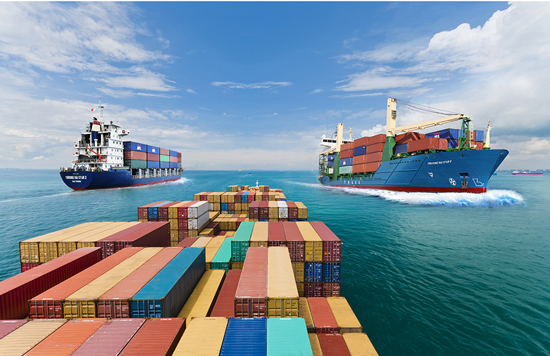
- Procedures for conducting customs formalities ...
- 14:08, 12/11/2024
-
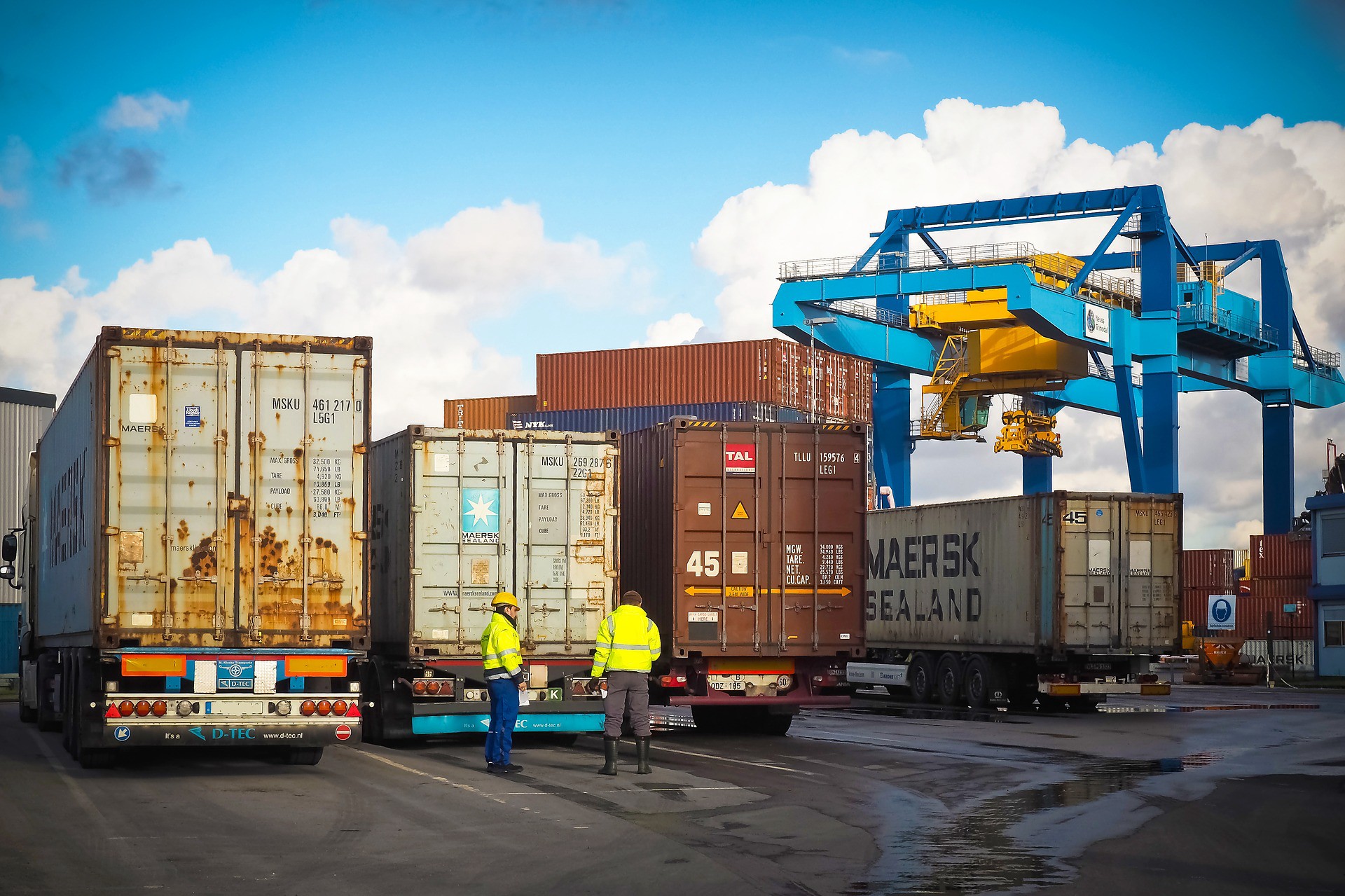
- Customs formalities for repurposing goods in Vietnam
- 18:00, 23/08/2024
-
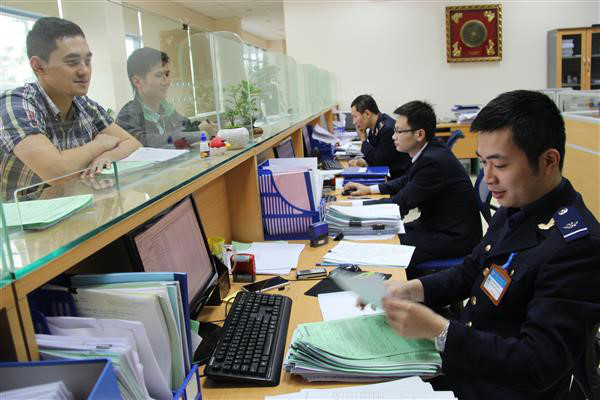
- Compilation of Official Dispatches resolving issues ...
- 19:11, 11/07/2024
-
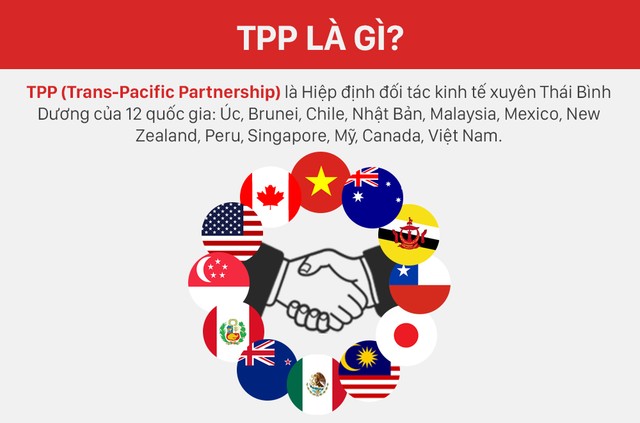
- TPP - Chapter 01 - General Provisions and Definitions
- 12:10, 11/07/2024
-
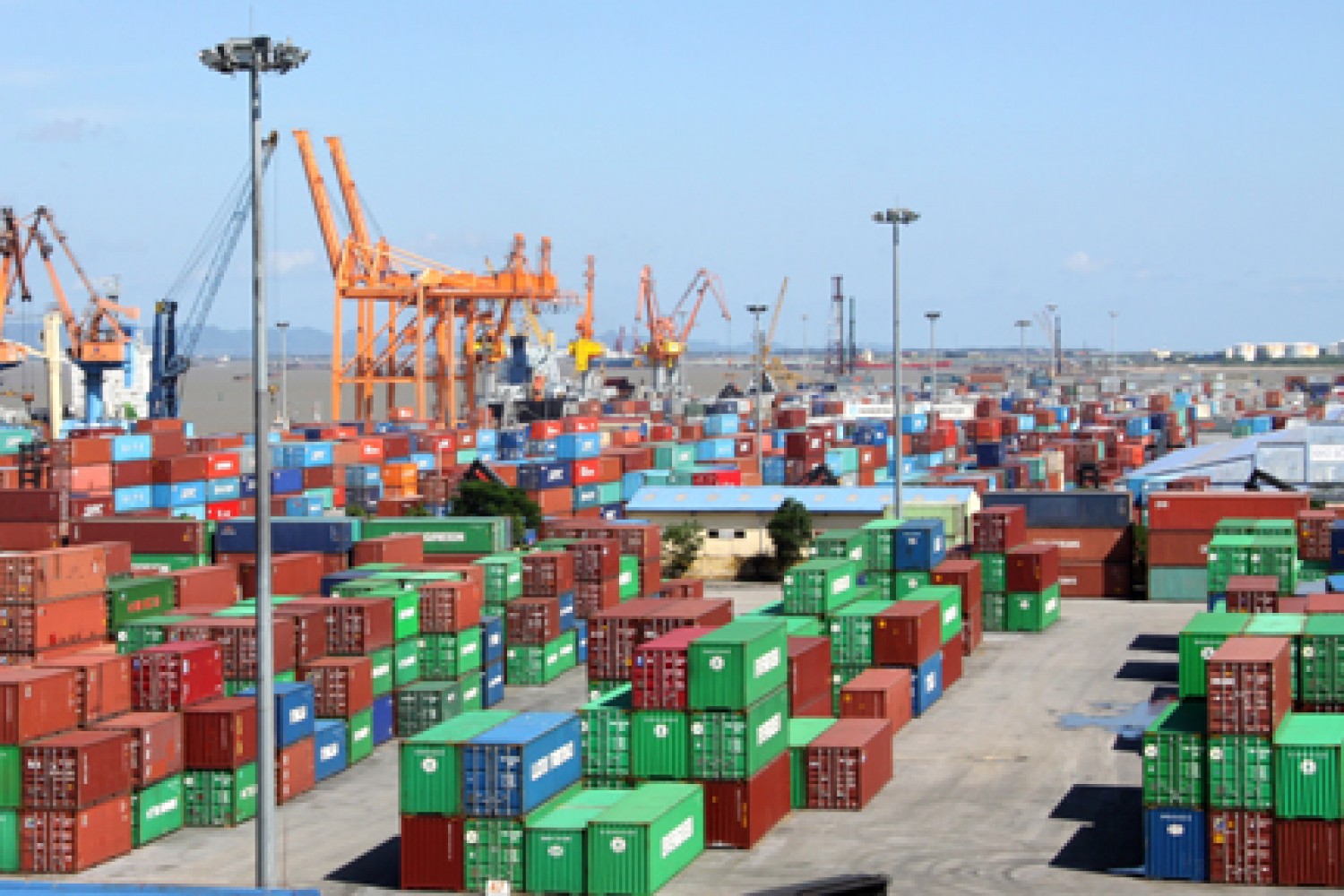
- TPP - Chapter 08 - Technical Barriers to Trade
- 12:10, 11/07/2024
-

- Notable new policies of Vietnam effective as of ...
- 16:26, 11/04/2025
-
.Medium.png)
- Notable documents of Vietnam in the previous week ...
- 16:21, 11/04/2025
-
.Medium.png)
- Notable documents of Vietnam in the previous week ...
- 16:11, 02/04/2025
-
.Medium.png)
- Notable new policies of Vietnam to be effective ...
- 16:04, 02/04/2025
-
.Medium.png)
- Notable new policies of Vietnam effective from ...
- 14:51, 21/03/2025
 Article table of contents
Article table of contents
